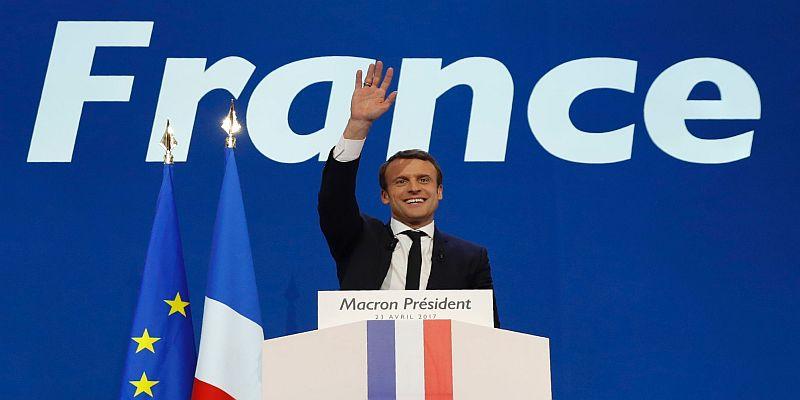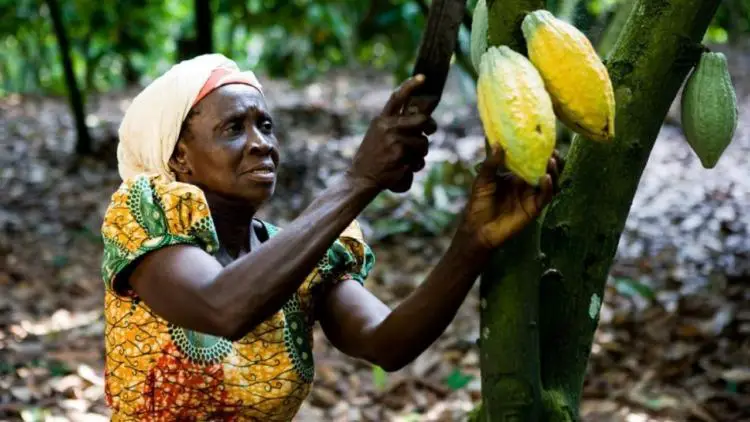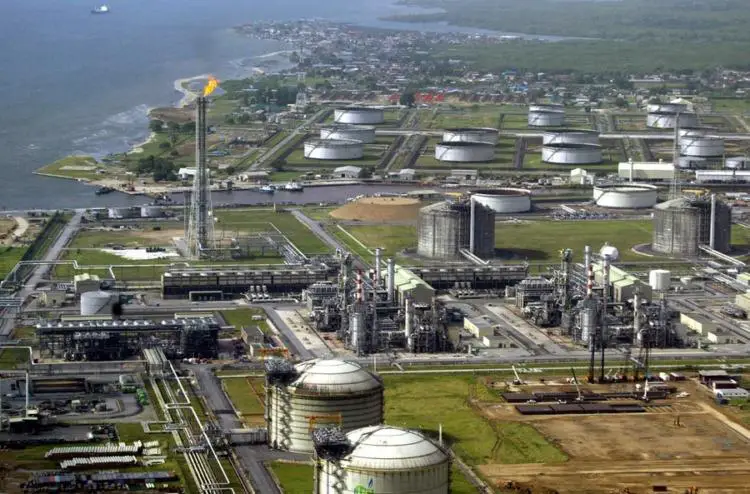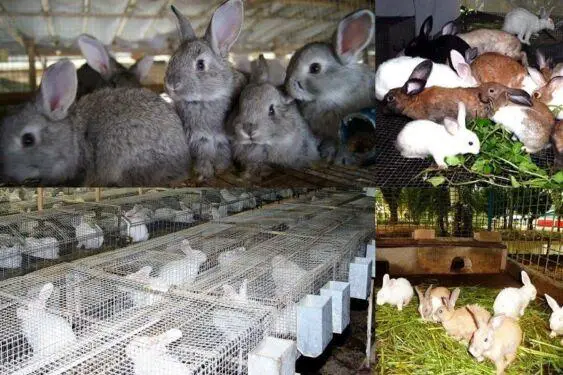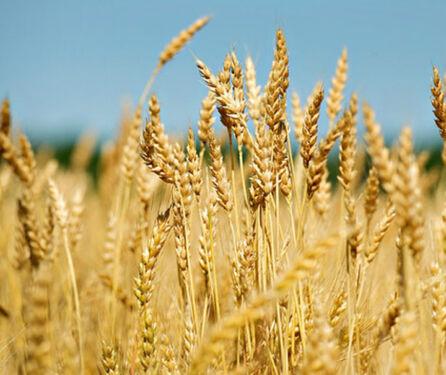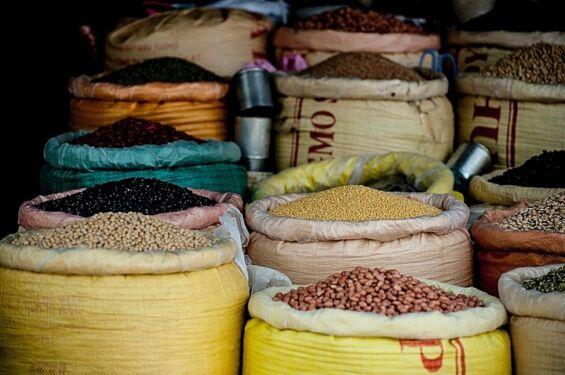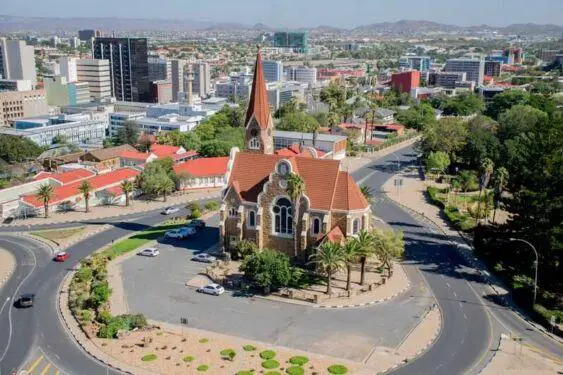- Abu Dhabi radiates optimism as over 300 startups join AIM Congress 2024
- TLcom Capital Raises $154 million in Funding to Boost Its African Growth
- Africa’s $824Bn debt, resource-backed opaque loans slowing growth — AfDB
- LB Investment brings $1.2 trillion portfolio display to AIM Congress spotlight
- AmCham Summit kicks off, setting course for robust future of US-East Africa trade ties
- Why the UN is raising the red flag on the UK-Rwanda asylum treaty
- Portugal’s Galp Energia projects 10 billion barrels in Namibia’s new oil find
- Wärtsilä Energy offers tips on how Africa can navigate energy transition and grid reliability
Browsing: Nigeria
Africa Nations bagged goodies from the just concluded Paris summit held in France on May 18. The Summit brought together African leaders and global financial institutions, where a new deal was launched for Africa and by Africa, in host of the French President Emmanuel Macron.
For several decades in Africa, debates have taken place around economic relations between France and its former colonies in the continent.
But from Economic and political statements of Commentators of whether few element of exploitation exist or not in France’s way of Trading In Africa it is not a matter of Concern from French President Emmanuel Macron who is in mood to continue trading and offering Goodies to Africa, even though some of the unfair and unequal ethics are left unsaid. his country continues to control the trade and currency of these former colonies. The maintenance of economic domination allows the prolongation of political domination.…
It is not yet another good year for the Cocoa farmers in Ivory Coast the world’s biggest producer of the key ingredient for chocolate, as the prices of their commodity went down for the second year running.
This is contrary to M’Brimbo, a village in central Ivory Coast which 11 years ago became a testing ground for organic cocoa farming and today is prospering.
The local farmers’ collective, the Fair Cooperative Society of Bandama (SCEB), sell their high-quality produce at twice the market rate for non-organic cocoa.
“When producers are trained and well-paid, they can make very good cocoa in Ivory Coast,” said Arthur Gautier, an agronomist who works for Ethiquable, a French company that specializes in marketing fair-trade products and buys SCEB’s harvest.
ALSO READ: Harnessing Africa’s Sovereign Wealth
The chocolate made from their cocoa is sold in French supermarkets under the brand “Grand Cru M’Brimbo,” a name that …
Forbes recently. released a list of Africa’s top dollar musicians and here is the list in descending order.
- Youssou N’Dour (Senegal) – Net worth $145
Youssou N’Dour, AKA Youssou Madjiguéne Ndour, is a Senegalese singer, songwriter, composer, occasional actor, businessman, and, wait for it, a politician too. Yes, Africa’s wealthiest musician is shooting for the executive office and is not the only one on the list with aspirations of becoming their country’s president.
Youssou owns the biggest media house in Senegal with radio and Tv stations. He also boasts vast investments in real estate.
- Akon – net worth $80 million
World fames Akon is Africa’s second richest musician. Born Aliaume Damala Badara Akon Thiam, the US based star is also originally from Senegal. Akon who is also an actor and a businessman, has accumulated wealth from a diverse range of investments.
Akon writes songs and produces …
Nigeria’s oil production has fallen by 30 per cent in the last four years to 1.423 million barrels per day, mb/d in 2020 from 2.041 million barrels per day, mb/d in 2017.
This is according to a recent investigative study by the Organization of Petroleum Exporting Countries OPEC, which includes pipeline vandalism and oil theft in the Niger-Delta.
The figure excludes 2020 condensate production, according to the data obtained by Vanguard Energy from OPEC’s monthly market reports between 2017 and 2020.
ALSO READ: KQ to launch direct flights to Victoria Falls, Zimbabwe
The nation’s output declined by 19.3 per cent to 1.648 mb/d in 2018 from 2.041 mb/d in 2017 Year-on-year, YoY.
The production level, however, rose by 6.6 per cent to 1.765 mb/d in 2019 from 2018 figure before declining again by 19 per cent to 1.423 mb/d in 2020.
THE IMPACT
The gradual drop in output is a …
Zimbabwe rabbit farmers have imported 100 more pure breeds to help shore up efforts by the country’s rabbit producers to support and expand further cuniculture production.
With its significant potentiality to generate revenue for the country, its potential export market includes China and the US and farmers are leaving nothing to chance to the lucrative farming business.
Rabbit farming is a very profitable business with its demand for rabbit meat increasing in Zimbabwe. People want to try a different type of meat which is not chicken, beef, or pork.
A lot of people are switching to more healthy meat with less fat. Rabbit meat has become a perfect replacement for chicken since it is also white meat. Rabbits are easy to keep and are very profitable as the feed costs are low due to the fact that they eat a variety of foods.
An increasing number of farmers in Zimbabwe …
Zimbabwe Tobacco Farmers have collectively earned US$90,4 million from the sale of tobacco since its marketing selling season started as prices continue to firm.
Since the start of the 2021 tobacco selling season, farmers have sold 35,3 million kg worth US$90,4 million at an average price of US$2,56 per kilogram.
Comparing to the last season sale for the same period last which was an average price of US$2,25 per kg showed tremendous growth.
ALSO READ: Nigeria: Use of Modern Technology will Block Tax Leakages – Isaac Wadak
So far, 475 338 bales of the crop have been sold compared to 264 885 during the same period last year.
The bulk of the crop, as has become the norm, has been sold through the contract floors.
Contracted growers have sold 32,6 million kg worth US$783,6 million while 2,6 million kg worth US$6,8 million were sold through auction sales.
The substantive chief …
The Chartered Institute of Taxation of Nigeria (CITN) Jos and District Society chairman Mr Isaac Wadak, has endorsed the use of modern technology to block tax leakages and fraudulent action to improve and sustained internally generated revenue in the country.
Isaac Wadak has advised the newly inaugurated tax bodies in Plateau to channel their energy towards maintaining the same tax but not to increasing it but looking for more people to pay tax.
Mr. Wadak said this during the maiden edition of the annual tax week of Chartered Institute of Taxation of Nigeria (CITN), Jos District Society, where tax clubs were inaugurated at the University of Jos, Plateau State Polytechnic Barkin-Ladi and Plateau State University, Bokkos, respectively.
According to him the Finance Act 2020 has introduced landmark changes in Nigerian tax legislation with a view to improving a sustained revenue generation in the country.
Isaac Wadak noted that the charges …
About $6.1 billion is spent yearly to import wheat into Nigeria according to the Wheat Farmers Association of Nigeria.
Wheat is the only grain that is yet to record significant progress since 2011, with many farmers now going out of production. Despite being high in demand, successive administrations in Nigeria failed to improve its production, prompting some farmers to call it “political crop” because they believe its neglect is political; not economical. Statistics from World-Grain show that in 2017 Nigerian wheat was valued at $15.5m, up from $13m in 2016. The figure increased to $16m in 2018 and a further increase in production to the value of $16.3m.
Speaking to a press conference on Thursday 22, 2021 in Abuja the president of the wheat association Alhaji Salim Muhammad, while issuing a report on the state of the wheat in the country hailed the Central Bank of Nigeria (CBN) over various …
While Nigeria is the largest exporter for Sesame seeds, there’s still a lot of untapped potential of the lucrative export business this even as the seeds demand increases globally.
According to United states market based research report known as Hexa Research the Global sesame seeds market size is expected to hit $17.77 billion by 2025.
The fueling market demand was associated with its Increased application of the product as an anti-oxidant in various pharmaceutical formulations.
With the world production of Sesame seeds estimated to be 4. 8 million tonnes, ten [10] countries accounts for over 80% of it which includes Myanmar, India, China, Tanzania, Sudan, Ethiopia, Nigeria, Burkina Faso, Uganda, and Niger.
Africa, accounts for over 45 per cent of the crop, and in the last 10 years has become as a fast-growing supplier of sesame seed in the world market.
Of the Sesame seeds global production, over two million …
The African Private Equity and Venture Capital Association (AVCA) released its sophomore Industry Survey drawing African Limited Partners and General Partners commitment to African investment as long-term.
The survey report that was released on April 15, was conducted in review of broad cross-section of global and African Limited Partners’ (LPs) and General Partners’ (GPs) to determine perspectives and attitudes of investing in African private equity (PE) across various categories, sectors, geographies, investment stages, challenges, and returns.
According to the survey report, Majority of Limited Partners (86%) plan to raise or maintain their allocation to African Private Equity {PE} over the next three years, with impact and the investment mandates viewed by most Limited Partners as the primary factors driving their investment approach.
ALSO READ: Investing in Africa: Trends driving Private Equity and Venture Capital in Africa
65% of Limited partners said that the African Private Equity {PE} attractiveness remained the …





